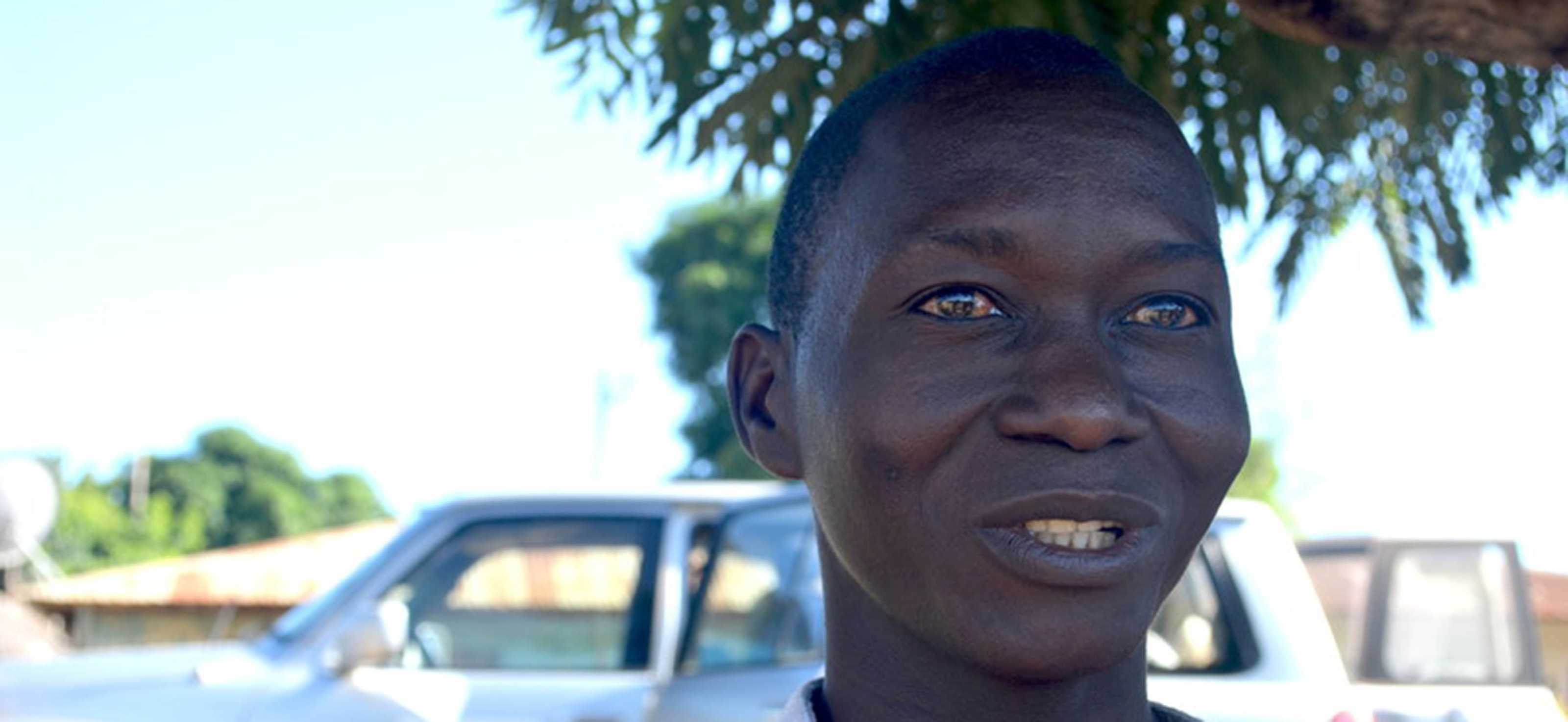Trachoma is a devastating neglected tropical disease that can spread easily in a family setting. The infection can spread by hands, bedding, clothing or even flies that have been in contact with the eyes or nose of an infected person.
Trachoma is especially dangerous because severe or repeated infections can lead to a painful condition called trachomatous trichiasis or TT— a condition in which the person’s eyelids become so damaged that their eyelashes turn inward and scrape the surface of their eye. Without treatment, TT causes permanent blindness.
… But not if Salum Ismail Ngoli can stop it.
Trained volunteers help prevent blindness from trachoma
Salum, 31, is a husband, a father of three and a farmer in the Mtwara region of Tanzania, where trachoma infection is common. He’s also a "community case finder" for a Corus World Health project that provides sight-saving surgery to individuals at risk of blindness from trachoma.
As a volunteer community health worker, Salum received training from Corus World Health to recognize the signs of trachomatous trichiasis. He rides his bicycle door-to-door throughout his village of Kihamba and the surrounding areas, using a flashlight to peer into his neighbors' eyes. He educates them about the condition and how trachoma is spread, and he provides referrals for those suffering from TT to attend upcoming surgical screening days at the local health center.
"I enjoy this work because I like helping others in my village," he says.
Preventing blindness and fighting poverty
Corus World Health has provided sight-saving surgery to 11,800 people in Tanzania's Mtwara region, relying on trained local case finders like Salum to identify those in need in their communities. Rather than bringing in surgeons from outside the community, Corus World Health ensures local health workers are trained and supported to conduct the surgeries— building local capacity for managing future cases.
As a result, men and women miss fewer days of work (both in the short term due to pain and the long term due to blindness), parents can provide better care for their children and individuals do not risk hardship and poverty due to preventable blindness. By saving someone's vision, we protect their livelihoods, their independence and the overall health and well-being of themselves and their families.
It takes all of us — including community health volunteers like Salum and donors like you — to bring health in reach for everyone, everywhere. Thank you for making this work possible.

